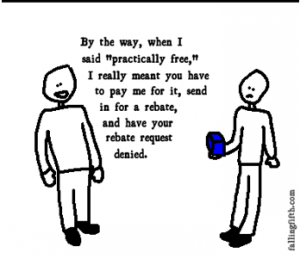 After writing about Xcel Energy’s back and forth disappearing, reappearing solar rebate (under the Solar*Rewards program), I was challenged to consider both the necessity and validity of utilities discounting the installation of rooftop photovoltaic systems. Since we here at 2nd Green Revolution enjoyed the intellectual exercise that flowed from our first “debate” (which continues now and again both online and off), we’re bringing you another “Opinionator” style debate.
After writing about Xcel Energy’s back and forth disappearing, reappearing solar rebate (under the Solar*Rewards program), I was challenged to consider both the necessity and validity of utilities discounting the installation of rooftop photovoltaic systems. Since we here at 2nd Green Revolution enjoyed the intellectual exercise that flowed from our first “debate” (which continues now and again both online and off), we’re bringing you another “Opinionator” style debate.
Electricity Producer: Here’s a bigger question: Why should electricity providers provide any rebates/incentives? It’s not in their best interest, is it? Isn’t the system still that the more electricity people use, the more electricity providers/electric companies make? I wouldn’t want to incentivize people to do something that would then make my business less viable.

Electricity Producer: Good point. However, that is more an incentive for the homeowner to install renewables than for the electricity provided to back them. Plus, fuel scarcity – up to a point – is beneficial to electricity providers because it allows them to charge higher rates. Politics, of course, demand that they not get too high.
Green Technology Proponent: Fuel scarcity cuts both ways. Yes, it allows utilities to charge a premium, but what is the incentive for the homeowner who can generate their own electricity at stable prices if there is going to be an unspecified increase in the cost of energy? In addition, both the utility (by having homeowners decentralize power production and use their land) and homeowners benefit from renewable electricity generation on a small scale.Electricity Producer: Most people are probably for clean/green technology if it’s comparable to what they are used to currently. This debate should not be seen as electricity producers on one side and green technology proponents on the others. Each camp has both, out of necessity. What could really blow this whole debate open and make everyone recalculate is something like the BloomBox from Bloom Energy. Should a major revolution in energy such as this be safe, affordable, and reach mass market, the whole games changes.
[Image source]

